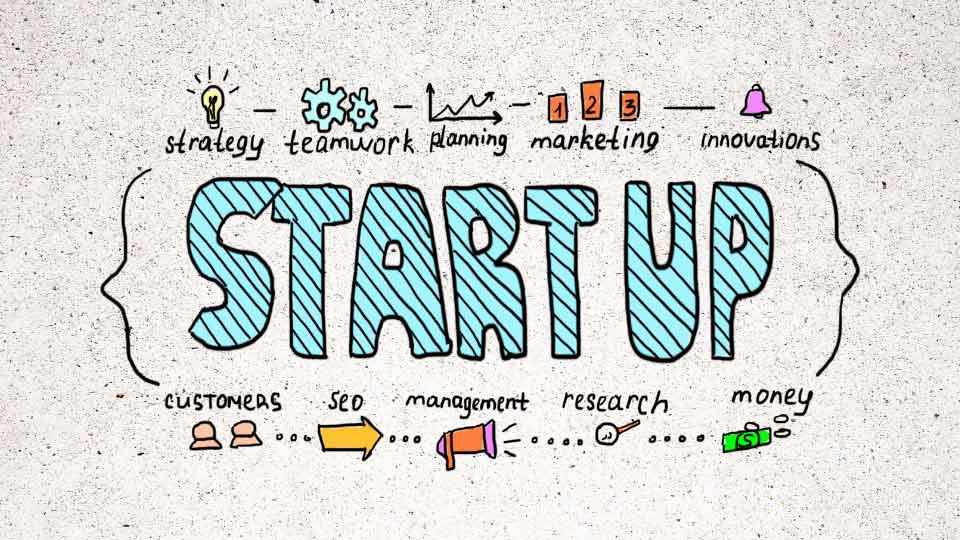New software launches every day worldwide. Outsourcing software development has become a common practice for startups and medium businesses. An increase in new markets, accessible technologies, and venture capital make it all possible. However, despite numerous success stories, various startups fail before they even fulfil their commercial potential.
All startups begin with entrepreneurs and a vision. They are aware of market opportunities and attempt to exploit technology. They have an idea of building a software product, whether a mobile application or a custom website. Such entrepreneurs have high energy and commitment. They seek out the outsourcing partner to move their vision into the lines of code.
Exceptional business people make things happen and move quickly to seize opportunities. But a preference for achievement can tempt an entrepreneur to cut research and leap too soon into developing the software product. As a result, successful entrepreneurs encounter setbacks frequently. Nevertheless, the majority of them dust themselves off and proceed. Determination and resilience are essential when starting a business, but owners should not take them lightly.
A false start can delay the obvious, and that is failing to meet consumers criteria. Powering new entrepreneurs through daunting challenges is a desire to have an impact on the market. But, it can also lead them astray and away from progress. Because of the limited resources, the startups often end before they even begin their journey. An idea is just a starting point but making it a reality is an entirely different matter. Early recognition of critical issues can increase the startup’s chances for success.
Key Points to Avoid Failure and Have Successful Product on the Market
Starting a company or outsourcing software development for business needs is an easy part. But, sustaining operations or making them grow is the challenge. Global market research shows that 80% of startups shut down due to the erratic market. The only way out is through wise financing and planning for a long term run regardless of the market.
Unable to Convey Needs to Development Team
All people are different, and one brilliant idea remains a secret if a person cannot explain it to another. That often happens between startups and software development teams. Communication of the software goals, requirements, and expectations is crucial for the development team. The detailed description, even screenshots of existing software on the market helps the development team understand the business needs.
Not Planning the Budget for Software Correctly
There is a certain amount of excitement when making ideas into reality, but often startup owners have many wishes. That isn’t the problem, but planning the budget can help their business remain viable in the long run. Unlike before, outsourcing companies can scale software according to the client’s needs. Starting small and growing the software at the same time as business is a sure path to success.
Not Following Consistent Strategies Throughout the Business
A strong passion and desire to succeed drives the startup owners. However, in their hope to show the world their ideas, owners often wander on the market. The result is diluting focus and heading in the opposite direction than the startup’s core business. In addition, if the services or product is confusing, the consumer will be less inclined to venture into what the startup offers.
Ignoring the Customers Needs
When building software, startups often get immersed in their idea of what that software should offer. Unfortunately, it results in ignoring the user’s point of view. Receiving the end-users feedback is a chance to improve the software, service or business in general.
There is no Actual Market Demand for the Product.
Startups begin with an idea. That concept is often more innovative than expected. However, building a business around the owner’s desires is not an excellent way to succeed. Startups fail when what they offer does not solve the user’s problems. Another reason may be that the market is not large enough to generate revenue. Researching the market beforehand is crucial to deciding whether to venture into the murky waters of the unknown.
Selecting Inexperienced Development Team for the Project
There are numerous outsourcing software development companies in the world, choosing the right one can be daunting. However, choosing a team with experience in the industry is a safe passageway to getting the project done within deadlines without damaging the software quality.
Reluctance to get Feedback from Development Team
Equally important as choosing the wrong team, there is also a certain level of mistake when ignoring the feedback from the software development team. As a result, some features or components of the software may not work correctly. There is also a danger of overloading the software with unnecessary elements. Skilled developers already have vast knowledge on making the software functional and user friendly.
What Goes Wrong
What frequently ends a startup is money—approximately 28% of startups name their finances the number one reason they had to withdraw from the market. But, sadly, many of them have ignored the critical pre-development signals to prevent failure.
Failing to meet the next milestone in business often means running out of funds and reaching the end of the road. So what goes wrong along the way? There are numerous reasons why startups fail with their software development, and it has nothing to do with outsourcing it. For example, the number one reason for eCommerce is traffic. Having a well-designed website, stock, and checkout process mean nothing if the consumers are not visiting or purchasing products.
When it comes to mobile apps, they may be innovative and fresh, but flawed research and no audience is a sure way to pitfall. Having a developed mobile application is the beginning of the journey, a digital product that generates value. Making it visible on the noisy market is another step. Finally, taking care of the audience, following the platform’s best practices, and testing the application can differentiate between failure and triumph.
Successful development of brand new software products is a crucial value for startups. However, their time and resources are limited, and one failed project or decision can put them out of business. Planning and anticipating the costs and following steps is a game-changing moment for any startup owner. The software product itself is not enough without the business plan and proper management.
The enthusiasm of startups often guides the spending. Rational preparation of the product on the market can have an enormous impact on the future of the product and its success. Taking one step at a time and making decisions on the way prevents failure in the future. Software development for startups can often propel the business on the market if done correctly.
Outsourcing as a concept changes the attitude from aspiring to make it run to make the impossible possible. Yet, that’s what TNation does, offering best practices, a wide range of solutions for custom software development, technical support and quality assurance.


